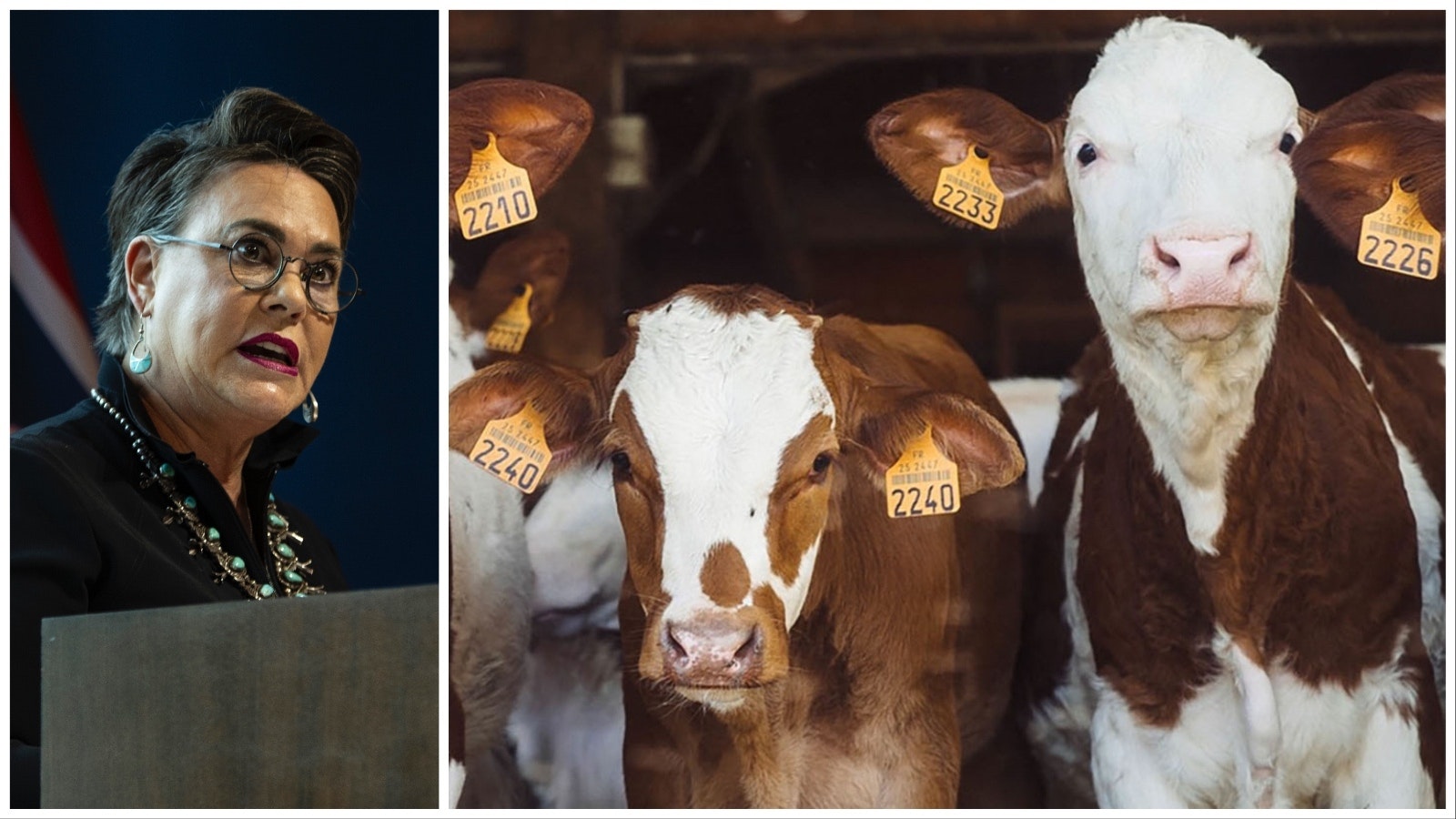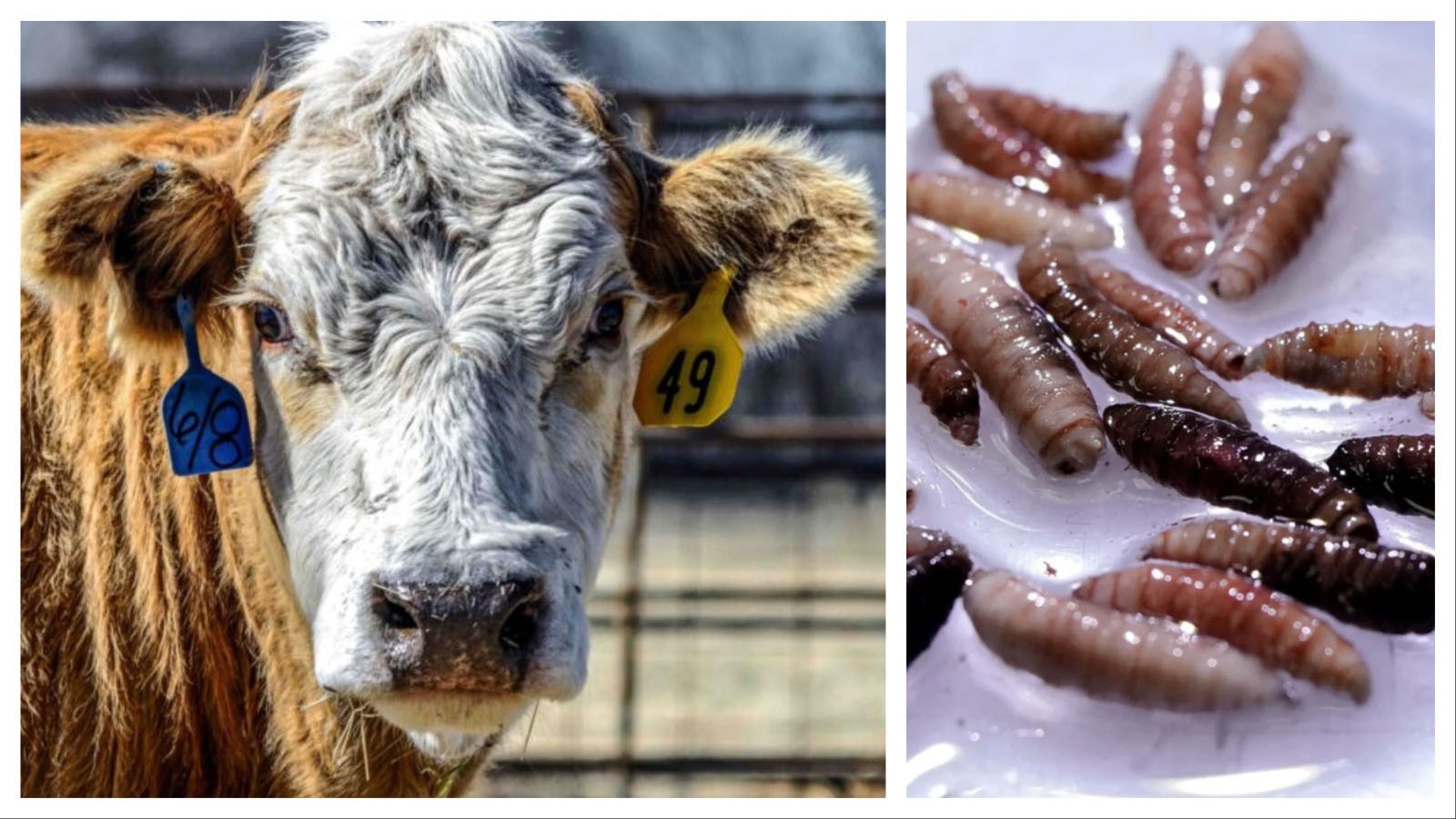Wyoming Congresswoman Harriet Hageman believes a U.S. Department of Agriculture proposal to require mandatory electronic ear tags for cattle and bison is as useful as a chicken-wire canoe.
Hageman has released an amendment to the USDA proposal to gut funding of the bill, which was first proposed back in January. In March, USDA extended the public comment period on the proposal.
According to the agency, the rule is needed to trace animals and eradicate disease.
"This goal can only be realized if the animals are properly identified and the individual and the herd, flock or group identification are recorded," according to a USDA statement.
Hageman says the mandate infringes on privacy rights of livestock owners and favors the beef processing industry by furthering vertical integration of the beef supply chain.
The Proposed Rule
The rule would require all cattle and bison to have ear tags that are electronically and visually readable to access interstate markets. Yet, ranchers already use ear tags that are visually readable, Hageman said in a press release.
The rule would cost $26 million a year to enforce and would require livestock owners and sale yards to maintain electronic ear tags and tracking tools.
Creation of electronic records and the rule's requirement to maintain them for five years subjects livestock owners to Freedom of Information Act Requests and allows undue government interference in private business, Hageman said.
"Not only would the government be tracking producers, environmental groups who attribute livestock to climate change could get this information as well," Hageman said.
Hageman also stated that livestock producers who choose to use electronic identification methods should be allowed to make that decision on their own. It's not the USDA's place to force the issue on them.
"This is another attempt by large industry to further vertical integration of the beef supply chain," according to Hageman. "Knowing smaller operations will struggle to shoulder the cost and infrastructure to maintain these systems, big packers support this policy because they can lock more competition out of the interstate market."
Solution In Search Of A Problem
Wyoming Farm Bureau Spokesman Brett Moline said that in Wyoming, the proposal is a solution in search of a problem. Through its brand inspection requirements, the Wyoming Livestock Board was able to trace cattle that were transported from South Dakota to Wyoming that were exposed to tuberculosis.
Canadian cattle carrying bovine spongiform encephalopathy (BSE) were also successfully traced after being imported into the U.S. in 2003, Moline said.
According to the Centers for Disease Control and Prevention, BSE surveillance has identified 26 cases in North American to date. Of those, six were in the U.S., and one of those six was imported from Canada.
"The Wyoming Farm Bureau position is if a rancher wants to use electronic identification that's fine, but we don't want it mandated," Moline said.
Increased Marketing Costs
The rule would increase marketing costs because whenever an animal is sold, it would have to be traced and recorded.
Under the rule, electronic identification would only be mandated on older cows and bulls, not calves.
Moline said a normal-sized Wyoming ranch with about 200 head of cattle will cull about 15% of its herd every year, and the cost of electronic identification and record keeping would take most of the profit from those sales.
Auction barns would be required to collect and keep data, and those costs would be passed on to ranchers, Moline said.
"In Wyoming, we have brand inspection requirements, so I think we have this so-called problem covered," he said.





